Boldness pays off for top legal practitioners

Roula Khalaf, Editor of the FT, selects her favourite stories in this weekly newsletter.
The lawyers highlighted here impressed the judging panel with their bold, creative problem-solving — in some cases contributing to broader industry change through their pioneering efforts. Takafumi Ochiai’s work at the intersection of policy and law, for instance, has helped to foster better co-operation between banks and fintechs in Japan, while Scott Neilson is driving his firm’s guidance to clients on financing net zero emissions targets in line with the global energy transition.
Many bring hybrid skills from previous roles in banking or tech that they have applied to legal work in novel ways; others have taken the lead on big, complex deals, helping clients negotiate various hurdles with determination and legal innovation, sometimes working across borders.
Marcia Ellis stood out, not only for her leadership on several high-profile mergers and acquisitions, but also for taking action to change her industry for the better, from hiring and mentoring women in private equity to redress the gender imbalance, to pushing the fund industry to act on environmental, social and governance goals.
Profiles compiled by RSGI researchers and FT editors. “Winner” indicates an Innovative Lawyers 2023 award, the rest are in alphabetical order.
WINNER: Marcia Ellis, partner, Morrison Foerster
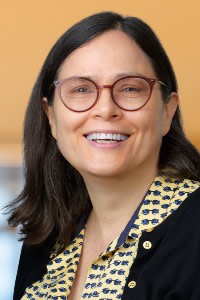
Most private equity deals are led by men — a stark gender imbalance that mergers and acquisitions lawyer Marcia Ellis has set out to rectify.
As global chair of Morrison Foerster’s private equity group, she has made the hiring and promotion of women a priority. Since joining the firm in 2014, 12 of the 15 lawyers she has hired have been women and partners in the firm’s Asia private equity practice are now split evenly by gender. As co-chair of the American Chamber of Commerce’s Women of Influence Steering Committee in Hong Kong, she also set up a programme to teach practical career skills to female students.
Ellis has been instrumental in expanding the firm’s ability to service premium clients such as BlackRock and Alibaba. In addition, she is pushing the funds industry to be more active on environmental, social and governance agenda.
Zhen (Katie) Feng, partner, Hogan Lovells

Zhen (Katie) Feng was the first lawyer hired by Hogan Lovells in Shanghai in 2003. Since then, she has driven the firm’s success in China, becoming leader of its Shanghai office in 2019 and a prominent intellectual property lawyer.
In 2016, she created one of the first legal sector joint ventures between an international firm and a local firm in the Shanghai free trade zone — still a rarity today.
This joint venture, Hogan Lovells Fidelity, reports annual profit growth of more than 15 per cent since 2019. It has helped Hogan Lovells to expand its client offering in China, with services including litigation and insolvency, which foreign law firms were previously unable to offer in the country.
Feng has continued to expand her intellectual property practice, representing several big clients including sportswear brand Nike and tech company Apple.
Ryo Kawabata, partner, Mori Hamada & Matsumoto
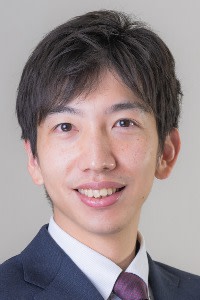
From simplifying the financial restructuring process to setting up frameworks to decide a fair price for company shares in Japan, Ryo Kawabata has been solving tricky client problems for more than a decade.
Qualified in both the US and Japan, he has an entrepreneurial mindset. As insolvency / disputes partner, he worked in Mori Hamada & Matsumoto’s south-east Asian offices before returning to Tokyo, and continues to act as an important link between the firm’s Japanese and foreign offices in the region.
In 2022, Kawabata and his team created a new scheme for the debt restructuring of global auto parts manufacturer Marelli. This has also led to proposed legislation in Japan to reform the country’s bankruptcy protection regime and help to ease corporate rescues when the full support of creditors cannot be secured.
Iksoo Kim, partner, Paul Hastings
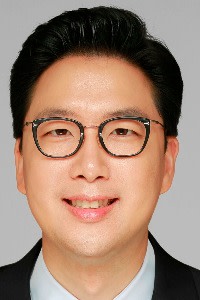
Iksoo Kim trained in economics and worked as an investment banker at Lehman Brothers before switching to law — first in New York and then Hong Kong. He is also a chartered financial analyst.
And his ability to bring together these different disciplines in a hybrid practice at Paul Hastings has helped the firm to make an impact in legal capital markets in South Korea.
In the past two years, Kim and his team advised on every initial public offering in South Korea with an international tranche of shares (eight deals worth more than $20bn in total).
Kim uses US legal approaches in South Korea to help domestic companies with their global expansion plans.
One example of this was advising on entertainment company Hybe’s $1bn acquisition of Ithaca Holdings in 2021 — the first acquisition of a global music company by a K-pop label.
Sandy Mak, partner, Corrs Chambers Westgarth

Sandy Mak’s recent work for gold explorer Gold Road Resources helped ensure a smooth takeover of its competitor De Grey Mining in Australia, where the stock market is not dominated by institutional investors.
To enable her client to buy stocks in De Grey Mining, even when there were not enough in the market due to insufficient liquidity, Mak worked closely with Credit Suisse, using a novel financing structure to build stakes in the target company overnight. This avoided a share price increase, which would have followed an incremental stake build.
It involved the investment bank borrowing shares from De Grey Mining shareholders to sell to Gold Road Resources, in return for a fee and a promise to return the shares over time. Gold Road’s existing stake was used by the bank to cover its exposure to the De Grey Mining shares that were bought.
Atsushi Mizushima, partner, Nishimura & Asahi

In 2011, Atsushi Mizushima stepped away from legal practice to pursue an MBA at Stanford University, where he founded WHILL, a start-up designing wheelchairs guided by autonomous driving technology.
When he returned to law, he set up a multidisciplinary team at Nishimura & Asahi to implement a new process called “execution design”, to better advise tech clients. The emphasis is on scalability and competitiveness, and starts with understanding clients’ technologies. This helped Mizushima in advising iSpace, a lunar robotics company, on the largest first round of fundraising for a space start-up. He also supported Heartseed, a biotech company developing artificial cardiac muscle cells, on its global licence agreement with Danish pharmaceutical group Novo Nordisk for a stem-cell based therapy for heart failure.
Scott Neilson, partner, Allen & Overy

As regional head of banking for Asia-Pacific and a founding member of the firm’s new sustainability group, Scott Neilson aims to make an impact with clients and the markets they operate in by guiding them on sustainability matters. He runs internal training on the energy transition, which has so far been attended by more than 300 partners. He also led on a report, “Financing the Gap”, to address the financing that companies need to meet net zero targets. It was part of a campaign to marshal the firm’s resources and create research related to the legal challenges involved.
He brings years of experience in sustainability-linked financing, such as his work advising the Japan International Cooperation Agency (JICA) on its financing of Uzbekistan’s first big wind farm project, and working on a loan agreement to fund a mass transit system for electric ferries in Thailand.
Takafumi Ochiai, head of policy research institute, and senior partner Atsumi & Sakai
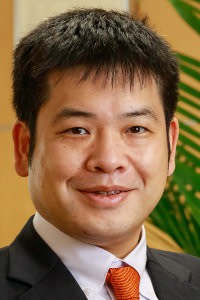
To improve the alignment of law and policy in Japan, Takafumi Ochiai has been working to create open innovation frameworks and help businesses become more digital. For example, he has enabled Japanese fintechs to use banking APIs (programming links), which allow third parties to communicate with online banking systems. He also helped establish the Japan Association for Financial APIs, which acts as a self-regulation body for fintechs and other IT companies.
Ochiai founded the firm’s policy research institute in 2022, which brings together academics, lawyers, companies and public organisations to advise the Japanese government on new policy. His work has facilitated the growth of the fintech industry, a more open banking system, and the establishment of electronic signatures in Japan.
Gunjan Shah, partner, Shardul Amarchand Mangaldas

Mergers and acquisitions partner Gunjan Shah advised on the proposed merger of Zee Entertainment and Bangala Entertainment with and into Culver Max Entertainment (part of the Sony group), creating one of India’s biggest media conglomerates.
Shah led a team of around 60 lawyers on the merger, navigating complex legal structures and making sure the sequence of actions was right in order to meet regulatory approval.
The deal involved many complicated sub-transactions, including a reverse merger of a large Indian publicly listed company (Zee) with an unlisted Indian company (Sony India); a company going private; and a subsequent listing of the combined entity.
Shah’s team worked closely with Sony in Tokyo, Los Angeles and Mumbai and several companies across more than 15 jurisdictions.
Feifei Zheng, partner, and global China practice executive, Pinsent Masons
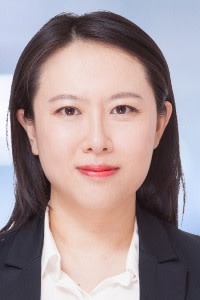
Feifei Zheng created the China compliance team at Pinsent Masons in 2019 to capitalise on the growing interest in corporate compliance in the region — driven in part by the Chinese government’s global infrastructure project: the Belt and Road Initiative. This involves helping Chinese clients on construction projects overseas, where there are specific rules to follow.
The team advises on compliance and regulatory matters, such as improving clients’ compliance policies and procedures, along with import and export controls and sanctions.
Zheng has delivered training on compliance issues to around 8,000 individuals from leading Chinese companies. The practice has grown 95 per cent in the past year and accounted for almost 10 per cent of the firm’s fees in China last year.
Judging panel
For the Innovative Practitioner award, the winner was selected by a panel of judges from a shortlist compiled by RSGI: Matthew Vincent, editor, FT Project Publishing (panel chair); Harriet Arnold, assistant editor, FT Project Publishing; Amy Bell, commissioning editor, FT Project Publishing; Reena SenGupta, executive director, RSGI; David Fisher, founder and CEO, Integra Ledger; Jack Shepherd, legal practice lead, iManage; Hana Mandapat, head of product marketing, Ironclad; Christopher Saul, managing director, Christopher Saul Associates

Comments